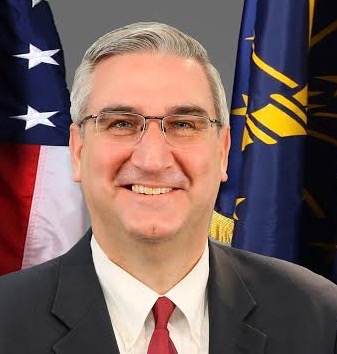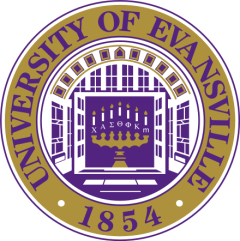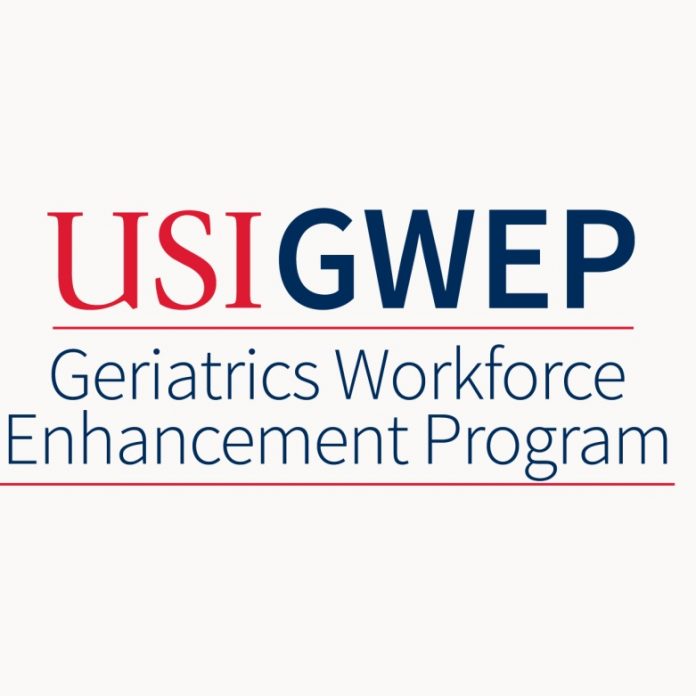Gov. Holcomb awards READI 2.0 funding, expected to yield $11B in generational quality of place investments statewide
READI 2.0 increases state’s total READI investments to $1B with continued focus on growing talent and population across the state
INDIANAPOLIS – Governor Eric J. Holcomb announced plans to award $500 million to 15 regions representing all 92 counties to support quality of place and quality of life initiatives statewide. The funding, made available through the expansion of the Indiana Regional Acceleration and Development Initiative (READI), was approved today by the Indiana Economic Development Corporation (IEDC) board of directors at a special session hosted by the governor and Secretary of Commerce David Rosenberg. READI 2.0 will grow the state’s overall program commitment to $1 billion, marking an unprecedented state-led investment in cultivating vibrant, modern and sustainable communities that attract and retain top talent.
“Indiana is leading the way in future-focused investments in our economy and in our communities, ensuring that all Hoosiers of today and tomorrow have the opportunity to prosper,” said Gov. Holcomb. “READI has already resulted in more than $12.6 billion invested in quality of place and quality of life assets. The second iteration of the initiative – READI 2.0 – along with additional committed investments from the Lilly Endowment, will bring billions more to Hoosier neighborhoods, preparing communities, industry and talent for the next generation and beyond.”
In February, the 15 regions submitted proposals for READI 2.0 funding, outlining each region’s vision for its future as well as growth strategies and action plans to improve its quality of life, quality of place and quality of opportunity. An external review committee evaluated the applications based on a variety of factors, including economic development potential, alignment with the state’s priorities, such as population growth, per capita income growth, growth in employment opportunities, educational attainment, housing units developed, childcare capacity and innovation activities as well as the level of focus on rural communities, and the degree of regional collaboration.
“Almost every conversation I have with a company, whether an established Hoosier business or a new company coming to the state, begins and ends with the workforce,” said Sec. Rosenberg. “READI is an essential component for the state retaining and growing our population and workforce talent. Under the governor’s leadership, Indiana is investing an historic $1 billion to build vibrant and healthy communities that attract top talent, support families, cultivate innovation and entrepreneurship, and catalyze continued economic and job growth. Companies around the world are taking notice of this program, and the General Assembly’s investment in these areas has unquestionably been a business retention and attraction tool.”
This funding will build on the momentum of the state’s initial commitment to READI, which has yielded $12.6 billion (26:1 investment leverage ratio) in committed capital investments by public and private sources in Indiana’s communities. The 15 regions awarded funding through READI 2.0 will be eligible to access an additional $250 million grant awarded by Lilly Endowment Inc. (LEI) to enhance the impact of Indiana’s investments through READI, focusing on projects targeting blight reduction and redevelopment and enhancing Indiana’s vibrant arts and culture ecosystem. Much like other quality of place initiatives led by the IEDC, READI 2.0 and its expansion through LEI is expected to attract a minimum 4:1 match of local public and private funding. Based on the plans outlined in READI 2.0 applications, the state’s $500 million investment alone is expected to yield nearly $11 billion overall invested in increasing the vibrancy and prosperity of Hoosier communities.
The regions and funding allocations are:
Accelerate Rural Indiana – awarded $30 million
Led by: Accelerate Rural Indiana Regional Development Authority
Counties: Decatur, Rush, Shelby + City: Batesville
Central Indiana – awarded $45 million
Led by: Central Indiana Regional Development Authority
Counties: Boone, Hamilton, Hancock, Hendricks, Johnson, Madison, Marion, Morgan, Putnam
East Central – awarded $35 million
Led by: East Central Indiana Regional Partnership
Counties: Blackford, Delaware, Fayette, Grant, Henry, Jay, Randolph, Wayne
Greater Lafayette – awarded $35 million
Led by: Greater Lafayette Commerce Community and Economic Development Foundation
Counties: Benton, Carroll, Fountain, Montgomery, Tippecanoe, Warren, White
Indiana First – awarded $15 million
Led by: Southwest Indiana Development Council
Counties: Harrison, Knox, Perry, Pike, Spencer
Indiana Uplands – awarded $30 million
Led by: Regional Opportunity Initiatives Inc.
Counties: Brown, Crawford, Daviess, Dubois, Greene, Lawrence, Martin, Monroe, Orange, Owen
North Central – awarded $35 million
Led by: North Central Indiana Regional Planning Council
Counties: Cass, Clinton, Fulton, Howard, Miami, Tipton
Northeast – awarded $45 million
Led by: Northeast Indiana RDA
Counties: Adams, Allen, DeKalb, Huntington, LaGrange, Kosciusko, Noble, Steuben, Wabash, Wells, Whitley
Northwest – awarded $45 million
Led by: Northwest Indiana Forum
Counties: Lake, Porter, LaPorte, Jasper, Newton, Pulaski, Starke
Our Southern Indiana – awarded $45 million
Led by: Our Southern Indiana Regional Development Authority
Counties: Clark, Floyd, Jefferson, Scott, Washington
South Bend-Elkhart – awarded $45 million
Led by: Northern Indiana Regional Development Authority
Counties: Elkhart, Marshall, St. Joseph
South Central – awarded $30 million
Led by: Southern Indiana Housing and Community Development Corporation
Counties: Bartholomew, Jackson, Jennings + Town: Edinburgh
Southeast – awarded $10 million
Led by: SEI READI Inc.
Counties: Dearborn, Ohio, Switzerland, Union, Franklin, Ripley (excludes city of Batesville)
Southwest – awarded $45 million
Led by: Southwest Indiana RDA (SWIRDA)
Counties: Gibson, Posey, Vanderburgh, Warrick
Wabash River – awarded $10 million
Led by: Wabash River RDA
Counties: Clay, Parke, Sullivan, Vermillion, Vigo
The READI 2.0 review committee includes: Marianne Cusato, Notre Dame Housing and Community Regeneration Initiative; Robert Gallardo, Purdue Center for Regional Development; Tom Guevara, Indiana Public Policy Institute; Will Hagen, Taylor University; Andrea Kern, Indiana Office of Community and Rural Affairs; Bill Taft, Local Initiatives Support Coalition; David Terrell, Ball State Indiana Communities Institute; and Brad Vogelsmeier, Urban Land Institute.
Now that investment allocations have been finalized, the IEDC will coordinate with each of the 15 areas to identify regionally significant capital and infrastructure projects for investment. In conjunction with these discussions, each region will identify specific projects focused on blight reduction and redevelopment as well as arts and culture initiatives for funding opportunities made possible with the support of Lilly Endowment Inc.
Launched by Gov. Holcomb and led by the IEDC, READI is a nationally recognized initiative that is moving communities forward by encouraging regional collaboration and data-driven long-term planning that, when implemented, will attract and retain talent, improve the health of Indiana communities, and increase opportunities for current and future generations of Hoosiers. READI 2.0, which was part of the governor’s 2023 Next Level Agenda and approved by the Indiana General Assembly, was a direct response to the significant demand for quality of place investments from communities across the state.
More information on READI 2.0 – including evaluation frameworks, links to download the regions’ application economic summaries, etc. can be found at IndianaREADI.com.
UE Announces 2024 Outstanding Educator Winners
EVANSVILLE, IND. (04/11/2024) The University of Evansville (UE) proudly honored four outstanding educators in Vanderburgh County with prestigious awards during its 33rd annual ceremony on April 10. Each recipient received a surprise announcement within their school, celebrating their remarkable contributions to education.
Specific to Vanderburgh County, this competition recognizes exemplary classroom teachers and building principals in grades K-12, each possessing a minimum of three years of experience. These esteemed awards are made possible through the generous sponsorship of UE, Evansville Liberty Federal Credit Union, and the Evansville Courier & Press.
Outstanding Elementary Teacher of the Year: Lindsey Stine

With twelve years of teaching experience, Lindsey Stine has dedicated eight years to West Terrace School, where she currently serves as a fourth-grade classroom teacher. She imparts knowledge across various subjects including Math, Science, Social Studies, Reading, and Writing. Stine’s commitment extends beyond traditional teaching, as she sponsors the Battle of the Books Team and the Student Leadership Committee, fostering student engagement and leadership development within the school community.
Stine’s teaching philosophy focuses on empowering students to be active participants in their academic growth. She states, “My teaching philosophy is to empower students. In the classroom, give students the opportunity to explore a problem or topic before ‘instructing’ them. This helps them to be active in their academic growth/education as well as encourages them to be problem solvers and critical thinkers.”
Her innovative teaching strategies reflect this philosophy, as she utilizes a “Teach Yourself” method to engage students in problem-solving and critical thinking. Stine explains, “Lessons have a certain pattern in my room (especially in Math). I like to teach using my ‘Teach Yourself’ method. We use funny voices and enjoy the wordplay. In more seriousness, I use this to introduce most lessons.”\
Stine’s dedication and impact are echoed in the nomination comments from colleagues and parents. One nomination reads, “Lindsey Stine is a phenomenal educator. I first met her six years ago when she was my daughter’s fourth-grade teacher. As a parent, she communicated well, encouraged my HA student to excel above her level, and was understanding in a couple of difficult social situations.”
Outstanding Middle School Teacher of the Year: Lindsey O’Brian
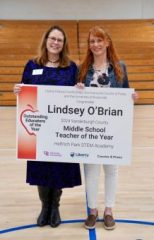
With a decade of teaching experience, Lindsey O’Brian has spent seven years as a 6th-grade English/Language Arts teacher, dedicating herself to nurturing students’ literacy skills and holistic development. Despite facing the challenges of a new curriculum this year, she has demonstrated resilience and adaptability, ensuring her students receive the best education possible.
O’Brian’s teaching philosophy centers on creating a supportive and inclusive learning environment where every student feels valued and capable of growth. She emphasizes the importance of building strong relationships with her students, fostering a sense of belonging and confidence in their abilities.
Her strategies reflect this philosophy as she strategically groups students and maintains clear classroom procedures, empowering them to take ownership of their learning journey. Mrs. O’Brian prioritizes growth over achievement, aiming to instill resilience and perseverance in her students.
Recognized for her unwavering dedication, one of O’Brian’s nominators stated, “Mrs. O’Brian runs her classroom with the students being her first priority. She always wants them to succeed to their fullest potential. Her diligence created a LOVE of reading for my now senior.”
Outstanding High School Teacher of the Year: Sally Sternberg
With 23 years of teaching experience, Sally Sternberg has been instrumental in fostering academic excellence and college readiness among high school students for over a decade. As the AVID Elective Teacher and Site Coordinator at Harrison High School, she spearheads initiatives to bridge the opportunity gap and prepare all students for success in a global society.
Embodying the philosophy that “children are the only future we have; teach them well,” Sally prioritizes students’ holistic development, providing a supportive environment where they can thrive academically and personally. Her commitment to building strong relationships with students is evident in her roles as a mentor, advocate, and compassionate listener.
Within the AVID program, Sally implements strategies that promote peer collaboration, student advocacy, and academic rigor, fostering a sense of belonging and empowerment among her students. Through weekly tutorials and college visits, she equips students with the skills and confidence needed to navigate postsecondary education and beyond.
Sally’s impact extends beyond academics, as evident in the heartfelt nominations from her students, highlighting her unwavering dedication and compassionate support. “I nominated Sally Sternburg because she does nothing but love her students. She never gives up on them and will do anything she can to help. She’s a very loving and compassionate teacher and makes coming to school easier for numerous students. I’ve seen her help a numerous amount of students not fail, including students that aren’t even in her class. you really can tell she cares, and it shows.”
Outstanding Building Principal of the Year: Angie Oliver
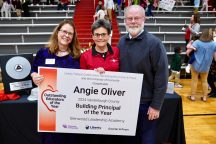
With over three decades of experience in education, Angie Oliver has demonstrated exceptional leadership as the principal of Glenwood Leadership Academy. Under her guidance, Glenwood has evolved into a supportive learning environment dedicated to the holistic growth of its diverse student body.
Angie’s philosophy of “Growing the WHOLE child through equitable support” underscores her commitment to student success and well-being. She prioritizes building positive relationships with students and staff, fostering a culture of collaboration and empowerment.
At Glenwood, Angie has implemented initiatives such as the REACH Academy and partnerships with community organizations to provide tailored support to students. Her dedication to teacher well-being and professional development has led to a positive working culture and improved student outcomes.
Oliver’s leadership is characterized by her hands-on approach and unwavering dedication to her school community. She goes above and beyond to ensure every student feels valued and supported, creating a nurturing environment where students can thrive.
Oliver’s leadership at Glenwood Leadership Academy exemplifies a commitment to student success, teacher empowerment, and fostering a positive school culture. “Angie is a light of positivity! She is welcoming to anyone who walks into her building and greets them with open arms. On mornings, she can often be found walking around the school with a speaker hanging from her pocket blasting music, dancing, and getting students and/or staff to dance along with her,” one of Angie’s nominators stated, “GLA and EVSC are lucky to have Angie Oliver working for our students!”
The University of Evansville is a private, comprehensive university located in the southwestern region of Indiana. Established in 1854, UE is recognized across the globe for its rich tradition of innovative, academic excellence and vibrant campus community of changemakers.
Home of the Purple Aces, UE offers over 75 majors, 17 Division I sports, and a unique study abroad experience at Harlaxton, the University’s very own Victorian manor located in the countryside of England. For more information, please visit evansville.edu.
EWSU Launches Automated Boil Advisory Phone Calls and Text Messages
(EVANSVILLE, IN) – Evansville Water and Sewer Utility (EWSU) customers no longer have to wonder if their property is included in a boil advisory or when the advisory is lifted. Customers with their phone number listed on their account will automatically receive an automated phone call and a text message as soon as a boil advisory is established for their address. Once the boil advisory is lifted, customers will receive a follow-up call and text updating the advisory status.
The automated messages will come from phone number 812-461-6606. Customers are urged to add this phone number to their contacts to identify the message is from EWSU.
If you have an account at https://mywater.ewsu.com please update your phone number and email there. Once you submit the form, check the email provided for confirmation or more details.
Automated boil advisory messages provide real-time information that correlates with data available to customers on the interactive Project & Advisory map. The new messaging system allows the Utility to push information direct to customers on the phone instead of requiring customers to visit ewsu.com/projectadvisorymap to look-up their location on the map.
Automated boil advisory messages are another way EWSU is using technology to improve services for our customers.
Casual 4A Cause: Ending Homelessness is this Friday, April 12, 2024, We are turning Evansville Purple!
EVANSVILLE, IN: This Friday, April 12th, the ECHO Housing and Community Development team will be out in the community promoting some of the businesses and organizations that are participating in our very first “Casual for a Cause: Ending Homelessness” campaign. This awareness and fundraising initiative will support ECHO Housing’s seven, soon-to-be eight homeless service programs.
We invite all media contacts to join us in the community as we sell bracelets and recognize the partners and businesses that help us work to end homelessness. The locations & times we have secured so far are listed below. We will likely have more security tomorrow (Thursday). You can reach me at the info above to find more times/locations.
We encourage everyone (all our news media friends) to participate in Casual for a Cause by purchasing a purple bracelet ($ 2 each) and wearing purple on Friday, April 12! Help us make a positive impact in the lives of those in need. Your involvement can make a difference.
Ways to participate:
• Go to one of the 18 businesses or organizations all over town that have agreed to sell bracelets (list attached) and buy a bracelet for $2. You can also thank the business for supporting our work!
• If you are wearing purple in support of Homelessness Awareness on Friday 4/12, take a selfie and post it to social media and tag ECHO Housing – @ECHOHousingCorp. You can also use the hashtags: #C4CEndingHomelessness and #ECHOHousing
• For more information about Casual for a Cause and how you can get involved, please visit www.echohousing.org/casual4acause/ or contact Kim Armstrong at kim.armstrong@echohousing.org.
Businesses/Organizations selling bracelets on behalf of ECHO Housing:
Donte’s Pizza
River Bend Association
Highland Inn
Bobaccino’s Café
Goodman Creek Furniture & Appliance
American Legion in Newburgh
Order of the Owls
A2Z Vape on N. GreenRiver
Schulthies Insurance
Give a Dog a Bone
Blooming Boutique
Molly’s Upscale Consignment Boutique
GD Ritzy’s (West)
Barker Brewhouse
Waylon’s Diner on Main
Eagles on 1st Ave
Conner Lock
NuSpace Moving
Many more businesses and employees bought bracelets to wear on Friday in support of ECHO – their names can be found on our Facebook page https://www.facebook.com/ECHOHousingCorp.
Schedule and Locations we will be on Friday 4/12:
11:30 am – In front of Angie Laugel Studio – 2015 W. Franklin Street & Lili Lu Designs 2203 W. Franklin
12:00 pm – Savannah Wood, CEO, goes on Facebook Live in front of Angie Laugel’s studio.
12:45-1 pm – Delivering bracelets to our partners at Carver Community Organization 400 SE 8th Street.
We will likely have more security tomorrow. You can reach me at the info above to find more
times/locations.
USI Geriatric Workforce Enhancement Program receives supplemental funding for nursing staff training
For the second year in a row, the University of Southern Indiana Geriatrics Workforce Enhancement Program (GWEP) has received additional funding from the Health Resources and Services Administration (HRSA) of the U.S. Department of Health and Human Services (HHS). This year, the amount of supplemental funding is $122,011, and it will be used to support several initiatives related to nursing staff training in academia and long-term care settings.
“This supplemental funding enables the USI GWEP to enhance the partnerships we have with academic institutions and nursing homes,” says Katie Ehlman, Director of the USI Bronstein Center for Healthy Aging and Wellness and Professor of Gerontology. “Last year, we focused on several initiatives related to nursing home staff education, recruitment and retention with a goal to educate and support the workforce while also improving the lives of older adults. We plan to build on our success again this year.”
Amy Pierce, USI Instructor in Nursing, has worked with the GWEP to incorporate a Dementia Live® simulation into the curriculum of a USI undergraduate nursing course, Care of Adults through the Lifespan. “Dementia Live is a high impact, dementia simulation experience that immerses students into life with dementia, resulting in a deeper understanding of what it’s like to live with cognitive impairment and sensory change,” she says. “The intent of this simulation is to provide training for nursing students to promote knowledge, understanding and empathy when providing care for persons living with dementia. Overall, students have found the simulation beneficial.”
Pierce said other additions to the nursing course include information on age-friendly care and Teepa Snow’s Positive Approach to Care® techniques. “An age-friendly system follows a set of evidence-based practices, called the 4Ms framework which aligns with what matters most to the older adult and family caregivers,” she says. “With the Positive Approach to Care, faculty mirror the techniques of Teepa Snow to teach nursing students how to best interact with and care for those with memory loss.”
During the fiscal year 2022-23, the GWEP’s nursing home partners utilized dementia and the age-friendly curriculums, and several staff members received the Dementia Live coach certification. To address resilience, partnering nursing homes selected one staff member to be trained as a Mental Health First Aid Instructor.
For the fiscal year 2023-24, the GWEP will continue to utilize the dementia and age-friendly curriculums to educate the nursing home workforce and will be rolling out a new ageism presentation, in addition to other new initiatives.
According to Ehlman, the Indiana Department of Health requested that the USI GWEP team recommend changes to the dementia component of the CNA state-approved curriculum. The nursing faculty review process will include an assessment of the materials from the HRSA Health Workforce, Train Health Care Workers About Dementia website. Learn more.
She said this year’s partners for the nursing home supplemental funding project are the Southwest Indiana Area Health Education Center (AHEC), the USI Bachelor of Science in Nursing (BSN) Program, Oasis Dementia Care, two skilled nursing homes and two high school certified nurse assistant (CNA) partners (to be determined).
The GWEP’s objectives for this funding period include:
- Develop or enhance evidence-based practice curriculum on nursing home care of older adults, including those living with dementia, within the context of the Age-Friendly Health Systems’ 4Ms Framework for potential nursing staff.
- Develop or enhance evidence-based practice curriculum on nursing home care of older adults, including those living with dementia, within the context of the Age-Friendly Health Systems’ 4Ms Framework for potential nursing staff.
- Partner with at least one accredited school of nursing and one certified CNA program to develop or enhance culturally competent curriculum.
- Partner with one nursing home to develop and/or enhance experiential care learning opportunities for student nurses and CNAs student/staff to encourage recruitment and retention to practice after graduation.
The USI Bronstein Center for Healthy Aging and Wellness is a long-standing partner with Snow and her Positive Approach to Care Company with 10 years of collaborative work. Snow is a dementia care specialist and an Occupational Therapist by training. She has developed a method called the Positive Approach to Care which recognizes what a person with brain change retains.
The USI GWEP has six previously recorded workshops taught by Snow, designed specifically for professional/formal nursing home caregivers. The USI GWEP team has published a link to video request forms on the website, and they are accessible to nursing home staff members.
The topics covered are:
- Recognizing and Responding to Exit-Seeking
- Person-Centered Care: Who Am I, and Why Does it Help Your Staff?
- Supporting Staff to Prevent Abuse and Neglect
- Dementia and End of Life
- Activities and Engagement to Prevent Challenging Situations
- Sexuality, Intimacy and Dementia
In an effort to offer pathways for advancement, enhanced education and improved wages, the USI GWEP will work to build an instruction pilot for a CNA Pre-Apprenticeship program. The groundwork for a pre-apprenticeship program will be established working in partnership with AHEC, Leading Aging and Indiana Healthcare Association and a Department of Labor intermediary.
For more information or to get involved with the USI GWEP, visit USI.edu/gwep.
This project is supported by the Health Resources and Services Administration (HRSA) of the U.S. Department of Health and Human Services (HHS) as part of an award over $3,691,706 million with zero percentage financed with nongovernmental sources. The contents are those of the author(s) and do not necessarily represent the official views of, nor an endorsement, by HRSA, HHS or the U.S. Government.
CenterPoint Energy encourages safety awareness and education during National Safe Digging Month
Utility reminds everyone to contact 811 before digging – including gardening, building a fence or installing a mailbox – to keep our communities safe.
Evansville, Ind. – April 11, 2024 – CenterPoint Energy is collaborating with the Common Ground Alliance to observe April as National Safe Digging Month and encourage customers to follow safe digging practices.
Anyone planning a project that requires digging should contact 811 at least two days prior to their work starting to have underground utilities located for free. CenterPoint Energy reminds customers this includes projects done by themselves or their contractors, including building a fence, planting trees, installing a deck, placing a mailbox or laying a patio.
“By taking the time to call 811 prior to starting their digging project, our customers and communities are taking a critical first step in helping keep everyone safe,” said Chasta Martin, Vice President, Field Services at CenterPoint Energy. “No matter how shallow the digging project, everyone can help prevent safety incidents and potential loss of service for their fellow community members by having underground utility lines located.”
According to a recent national survey*, approximately 51% of U.S. homeowners plan to dig on their properties this year. Of those surveyed, 56% are planning to dig without contacting 811 first. CenterPoint Energy and the Common Ground Alliance also encourage homeowners to verify that their contractors contact 811 prior to performing work.
Safe digging practices are required by state law and help prevent damaging underground natural gas, electric, communications, water and sewer lines. Digging without knowing the approximate location of underground utilities can result in serious injury, service disruptions, fines and costly repairs.
If a natural gas line is struck or ruptured outside of a home or business, customers are reminded to do the following:
- Leave the area immediately on foot. Do not attempt to restart or move powered equipment or use your mobile device or any other item that could cause a spark.
- Go directly to a safe location. Once a safe distance, call 911 and CenterPoint Energy.
- Remain in a safe area until emergency personnel direct them to do otherwise.
- Don’t try to repair a natural gas leak. Leave all repairs to a trained technician.
Visit 811BeforeYouDig.com for more information about 811 and the process to have underground utility lines marked. For more information about natural gas safety, visit CenterPointEnergy.com/Safety.
About CenterPoint Energy
As the only investor owned electric and gas utility based in Texas, CenterPoint Energy, Inc. (NYSE: CNP) is an energy delivery company with electric transmission and distribution, power generation and natural gas distribution operations that serve more than 7 million metered customers in Indiana, Louisiana, Minnesota, Mississippi, Ohio and Texas. As of December 31, 2023, the company owned approximately $40 billion in assets. With approximately 9,000 employees, CenterPoint Energy and its predecessor companies have been in business for more than 150 years. For more information, visit CenterPointEnergy.com.
*About the study
Online survey among 1,000 US Homeowners, aged 21+ fielded between March 5-7, 2024. The survey was conducted by Censuswide, a global insight-driven research center on behalf of the Common Ground Alliance. The margin of error based on a 95% confidence level is +/- 3%.
###
DEI Comes To Jasper, Indiana
DEI Comes To Jasper, Indiana
By Richard Moss MD
Republican Candidate for US HOUSE OF REPRESENTATIVE-8th District
APRIL 9, 2024
The medical staff at our community hospital in Jasper, Indiana, a small, generally conservative burg in the middle of fields of corn and soy, received an email from hospital administration indicating that they would begin implementing DEI training. I couldn’t remain silent and, instead, pushed back.
As the world knows, DEI refers to Diversity, Equity, and Inclusion. This concept, like many seemingly innocuous-sounding slogans or acronyms, carries with it aspects quite sinister. It is a phrase that has swept the nation and all our major institutions, including our universities and schools. DEI has become the new mantra, indeed, a booming industry and ethos, dominating our culture. But contained within it are concepts that are alien and antithetical to the Christian mission of our hospital, which is “being for others.” It is also hostile to the founding principles of the nation.
DEI is a hyperaggressive and politicized quota system, a radicalized version of affirmative action for certain so-called “marginalized” people. It divides society into “groups” based on race, sex, sexual orientation, ethnicity, religion, and so on. It gives preference to certain favored groups, which include, in descending order: Muslims, transgenders, gays, blacks, Hispanics, and women. It discriminates against other groups currently out of favor, chiefly whites, Asians, men, heterosexuals, and Christians. Alas, of late, another group has joined the list of the despised, and is now, perhaps, the chief target of DEI hatred: The Jews.
Apart from being intensely divisive, DEI reflects a world view that is not compatible with our biblical tradition. That tradition holds that each person is an individual uniquely made in the image of God. This transcendent concept is peculiar to the West and accounts for its extraordinary success, chiefly here in the US, the greatest embodiment of Western thought and accomplishment. (Although today, certain alien ideologies, of which DEI is one, threaten it.)
Our emphasis on the individual, protecting individual rights and liberties, has made Western nations, in general, and America, in particular, so desirable and this is why all the world seeks to come here. Our concept of individual worth explains our economic growth, standard of living, and extraordinary cultural and technological achievements. It is based ultimately on the freedoms and protections of the individual, precisely because of our belief in the sanctity of each person.
DEI rejects that. It is an identarian ideology, a “caste” system, so to speak, that divides society into intersectional groups based on perceived wrongs committed by alleged dominant power centers in society, which it perceives as intrinsically racist or sexist or homophobic, and so on. Within the DEI calculus, there are oppressors and oppressed, victimizers and victims, and, as noted above, so-called “marginalized people.”
This divisive, hierarchical worldview emerges from standard Marxist ideology, except its centered on culture or race rather than class, as originally conceived, hence the term “cultural Marxism.” DEI is an extension of cultural Marxism, part of the “intersectional” hierarchy of “oppression” that divides society into odd categories. Thus, it places the groups allegedly most “oppressed” at the pinnacle of the pyramid (e.g., blacks, women, or transgenders) and those designated most guilty of “oppression” at the bottom (e.g., whites, males, Christians, Jews).
Bari Weiss sums it up this way:
[The new ideology] replaced basic ideas of good and evil with a new rubric: the powerless (good) and the powerful (bad). It replaced lots of things. Colorblindness with race-obsession. Ideas with identity. Debate with denunciation. Persuasion with public shaming. The rule of law with the fury of the mob.
Rejecting the individual, DEI reduces American society into a collection of groups or tribes, hence the “tribalization“ of society. This tribalization(racialization) is based on certain immutable, physical traits such as skin color and sex. This, by the way, has been the norm for all of human history and throughout the world. America was unique in that it rejected tribalization, group characteristics, and superficial appearance, and elevated the individual, which accounted for its historic success, and the reason so many sought to live here.
DEI, furthermore, has no place in any institution that values standards and color-blind meritocracy. If diversity becomes the driving force behind hiring and promotion, or even a small part of it, rather than skill, accomplishment, and merit, then it necessarily compromises standards. If the goal is diversity, and to have proportional representation in Memorial Hospital’s workforce, based on race, sex, sexual orientation, and other such trivialities, even in part, and the hospital does not contemplate the individual and his unique abilities and contributions over all else, then the system collapses and becomes simply one of groups or tribes competing with one another. Meritocracy necessarily dies in such a system. You can have DEI or meritocracy, but not both.
Should hospitals now have quotas for their doctors, nurses, technicians, and janitors based on DEI principles of proportional allocations for blacks, Hispanics, gays, lesbians, Muslims, and transgenders over more qualified individuals of the wrong color, sex, or sexual orientation? Shall they treat patients based on such considerations?
Such a concept is antithetical to a hospital’s mission. It betrays these institutions’ purpose and, if they are faith-driven hospitals (as mine is), their religious and biblical basis for current fashionable, destructive, and divisive Marxist goals that have no place here and should be unequivocally rejected. Further, why is “diversity” a goal? Diversity is actually a challenge to overcome in the pursuit of “unity,” which is a far more important aspiration.
I made these same objections known in writing and verbally to the entire medical staff, hospital administration, and the board at my hospital, including the CEO. I have heard nothing back and do not know if they plan to proceed with their disastrous plans. I will continue to oppose it vigorously and must imagine that it is a small minority of leftist activists on the medical staff that pushed for it. I will do all that I can to ensure that it does not stand.
Richard Moss, M.D., a surgeon practicing in Jasper, IN, is a candidate for Congress for Indiana’s 8th district. He has written “A Surgeon’s Odyssey” and “Matilda’s Triumph,” available on amazon.com. Contact him at richardmossmd.com or Richard Moss, M.D. on Facebook, Twitter, and Instagram.
Richard Moss MD
richardmoss5@gmail.com
FOOTNOTE: The City-County Observer posted this article without bias, opinion, or editing.
The City-County Observer does not promote or condone discrimination of any kind including preference based on race, religion gender identity, or political preference.
EPD DAILY ACTIVITY REPORT
FOOTNOTE: EPD DAILY ACTIVITY REPORT information was provided by the EPD and posted by the City-County-County Observer without opinion, bias, or editing.
USI to host Eykamp String Quartet concert April 18
The University of Southern Indiana College of Liberal Arts will host a concert by the Eykamp String Quartet from noon to 1 p.m. Thursday, April 18. The group will be performing in the Rice Library 2nd Floor Reading Room as a special thank you to the University for our collaboration on the recent opera.
“We’re so pleased to have the Eykamp String Quartet in the lovely Rice Reading Room for a lunch hour concert. On hearing news of this event some days ago, a few people literally clapped their hands and said how great it was to have the Quartet back at USI,” said Dr. Del Doughty, Dean of the College of Liberal Arts.
The Eykamp String Quartet was established in 2002 through the generosity of the Eykamp Family to provide high caliber live classical music performances and provide dynamic educational experiences to our community and beyond. The Quartet performs free concerts throughout the year in the Tri-state area, ranging from schools, concert halls, parks, hospitals and community centers.
To learn more about this event, contact Doughty at ddoughty1@usi.edu.



